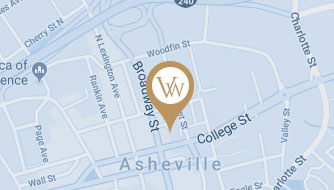In December 2014, President Barack Obama signed the Achieving a Better Life Experience (ABLE) Act into law. The ABLE Act allows individuals with disabilities, and their family members, to set up a special type of savings account to pay for qualified disability-related expenses that are not covered by public assistance programs, such as Medicaid or Supplemental Security Income (SSI).
Needs-based public assistance programs, like SSI, typically have a $2,000 cap for countable assets. Some assets, like a car and primary home, are non-countable assets. Prior to the ABLE Act, individuals receiving benefits under these programs were not able to save for basic necessary purchases. For example, a disabled individual may need a car to attend physician appointments, but previously could not save the necessary funds to purchase a car without exceeding the $2,000 asset cap and jeopardizing eligibility for assistance programs. Soon, ABLE accounts will allow disabled individuals (or a guardian or attorney-in-fact acting on the disabled individual’s behalf) to save for qualified expenses like health, education, housing, transportation, assistive technology, personal support, and other qualified expenses.
A total amount up to the annual gift tax exclusion amount ($14,000 for 2015) may be contributed to the ABLE account each year. In addition, the disabled owner of an ABLE account may save up to $100,000 in the account before having his or her public benefits suspended. After the owner of the ABLE account passes away, the state where the account was located may file a claim against the owner’s estate to reimburse funds paid by the state for the owner’s medical assistance.
Although the federal government passed the ABLE Act last December, the Internal Revenue Service, the Department of the Treasury, and each individual state must also pass laws regarding the creation and regulation of these accounts.
ABLE Accounts for North Carolina Residents
On June 23, 2015, the North Carolina House of Representatives unanimously passed House Bill 556, taking a step toward establishing the framework for ABLE accounts in North Carolina. The bill will now go to the North Carolina Senate’s Finance Committee and is on the calendar for Tuesday, July 21, 2015. Although it will take time to evaluate this bill and implement regulations before disabled individuals can open an ABLE account, the process is marching onward. Many hope that ABLE accounts will be available by the end of 2015 or early 2016.
After ABLE accounts are made available, disabled North Carolina residents will have new savings options for the various items not covered by public assistance programs, while maintaining a sense of independence that was previously unavailable. Stay tuned for more updates on ABLE accounts in North Carolina and contact Caroline T. Knox or Kathleen R. Rodberg at The Van Winkle Law Firm to find out what options are available for you or your disabled loved ones.
Kathleen Rose Rodberg joined The Van Winkle Law Firm’s Trusts and Estates practice in 2012. She focuses her practice on elder law and disability planning. Rodberg regularly helps clients establish and administer guardianships and special needs trusts, develop comprehensive Medicaid and long-term care plans, and prepares traditional estate planning documents.



